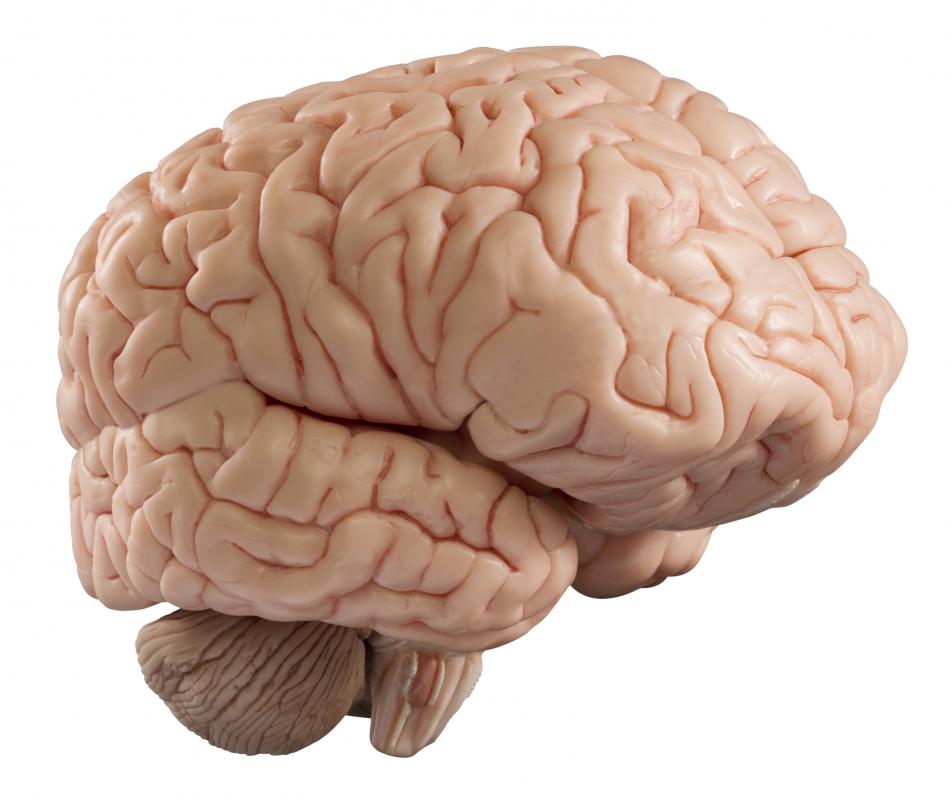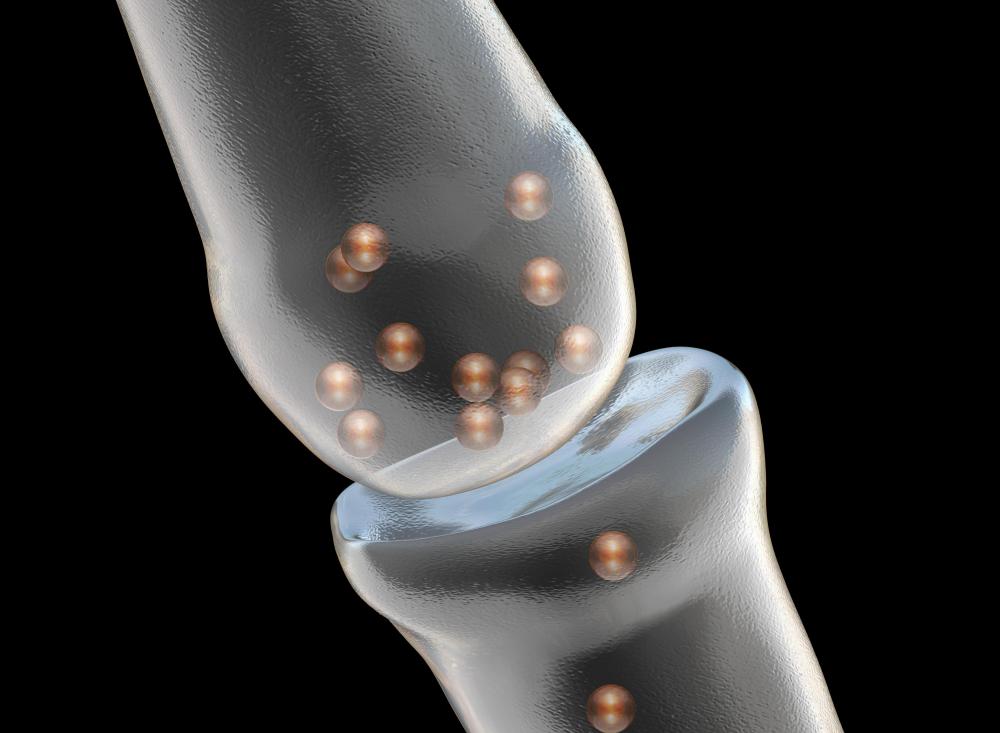At TheHealthBoard, we're committed to delivering accurate, trustworthy information. Our expert-authored content is rigorously fact-checked and sourced from credible authorities. Discover how we uphold the highest standards in providing you with reliable knowledge.
What is Noradrenaline?
Noradrenaline is a neurotransmitter and a catecholamine-type hormone that is manufactured as a drug and produced naturally in the human body. Also called norepinephrine, especially by those in the medical field, this hormone acts on the parts of the brain involved with responsiveness and fear. This neurotransmitter is released into the blood from the adrenal medulla and from nerves called adrenergic nerves. As a drug, control of the noradrenaline catecholamine is commonly used to treat low blood pressure and chronic depression.
Like other neurotransmitters, the noradrenaline chemical triggers a chain of neurons when the body needs to spring into action. When the body needs to react quickly to a stressor, this neurotransmitter increases blood pressure and heart rate, and gets the muscles ready to escape or fight. Too little of this chemical in the body can cause a person to become lethargic and sleepy. Those with low levels of noradrenaline generally have difficulty staying awake, concentrating, and paying attention to tasks. High levels of this chemical in the body can mirror symptoms of overdose, including nervousness, racing thoughts, cold hands and feet, and high blood pressure.

Neurotransmitters are chemicals released by neurons into the synapses — the space between nerves. When released, this chemical binds to neurotransmitter-receiving receptors to trigger a response in the next adrenergic nerve in the chain. Nerves that function as adrenergic nerves act on noradrenaline and related neurotransmitters. Adrenergic neurons and neurotransmitters are present throughout the body and predominantly control involuntary processes that keep the body alive, such as heart rate and breathing.

Noradrenaline is one of a class of hormones called catecholamines that regulate the body's response to stress. Other catecholamines include epinephrine, which is also called adrenaline, and dopamine. Hormones related to adrenaline are implicated in the body's fight-or-flight response mechanisms that trigger when faced with a threat. Catecholamines control stress response and reaction, so these types of hormones are often called stress hormones.

For patients diagnosed with chronic depression caused by an adrenergic deficiency, doctors sometimes prescribe noradrenaline or drugs that control neurotransmitter levels and affect the body's reaction to the chemical. Drugs that increase this neurotransmitter hormone in the body include brand-name drugs Adderall™, Ritalin™, and Dexedrine™. Levophed™ is the brand-name version of noradrenaline, which can be administered orally or intravenously. Side effects of the use of medicines affecting this hormone can include headaches, hiccups, heart attack, or high blood pressure. This drug is not recommended for children.
AS FEATURED ON:
AS FEATURED ON:
















Discussion Comments
I am trying to answer a question about Excitation Contraction Coupling of the Cardiac Muscle under the influence of the Sympathetic Nervous System.
Is noradrenaline a neurotransmitter is this respect or a hormone?
Do they both utilize the second messenger G protein/cAMP system?
@anon147609, One of the symptoms of a lot of fat "burning" drugs is that they are full of stimulant and mood enhancer ingredients, as well as usually a lot of caffeine. These help suppress your appetite while improving your mood so that you don't really notice you aren't eating, and you are more interested in doing what you need to do and working out because you aren't feeling hungry. Of course, you might also barely be sleeping. To be honest, from what I have heard and read, many of these drugs are not really very different from being on speed.
So I just started to take a dietary supplement called ADS Pyrogen that is a thermogenic fat burner. It is said to "Burn Fat - Does not Burn Muscle - 40% Increase in Noradrenaline - Sustained Energy - No Crash". So as far as the 40 percent increase in Noradrenaline goes, is it something I should be worried about? How does this effect me and my body? Or at least how should it? Because since I have been taking them I have not felt any increase in energy, instead I have felt very mellow and high almost.
I just want to make sure I'm not harming myself and wanting to know what to look out for. After scouring the internet for countless hours I have still yet to find adequate information and ratings on the effects this product has had on others taking it. Plus after reading this post on Noradrenaline it makes me wonder since it says that it's suppose to do the exact opposite of what I've been feeling. I feel like I'm on vicodin without the pain relief and dizziness. Any light shed on this would be greatly appreciated. Much thanks. --Very Agog
Post your comments